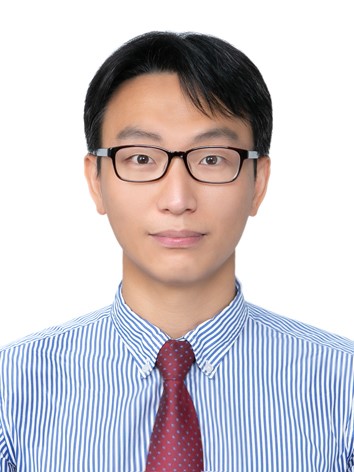Have you ever been on a package tour? You visit one place after another in quick succession, and by late evening, you find yourself unpacking your luggage at your accommodation. Trips like these often leave you more exhausted than when you began. That’s why I recently designed a slow travel program in collaboration with a travel agency -- solely to offer rest for both body and mind. I wanted to create a program that helps people reconnect with their inner selves, often neglected in the hustle of daily life, and lowers their stress hormones. I clarified the concept and drafted a plan.
The framework of this trip reflects the routine I follow to restore my usual condition. Sleep soundly without worrying about tomorrow. Eat meals made with fresh ingredients, without overindulging. Stay at the accommodation until you feel just a little bored. Prepare reading material. This is how I enjoy each day. From morning to night, I engage my body, mind, and spirit in balance. I run or walk a lot, read or write, and immerse myself in new environments and landscapes. By evening, I’ve usually walked around 20,000 steps. In a pleasantly tired state, I eat dinner slowly, rest, and go to sleep. After spending a few days like this, I begin to notice my worries gradually melting away.
The travel agency sent back a detailed itinerary. Unfortunately, my loose draft had been reshaped into a fairly rigid package tour. I also heard from others that, in the travel industry, a flexible itinerary can often lead to complications. Fortunately, after my repeated feedback, the schedule gradually became more relaxed and slower-paced. The resulting trip turned out to be quite different from the typical Korean vacation.

How do we spend our time off? On holidays, many people are eager to leave the country in search of relaxation. During this year’s Lunar New Year holiday in late January, Incheon International Airport recorded its highest-ever number of passengers, resulting in massive crowds. The growing preference for overseas travel stems from a desire to escape reality and consume new experiences. People seek fresh stimulation to forget the stress of everyday life -- and to collect photos to share on social media. In Korea, there’s also a perception that even spending a lot of money won’t guarantee a satisfying experience, due to the overwhelming demand during peak vacation seasons. No matter where you go, holidays often end up being about watching cars and crowds.
We tend to take short breaks around the same time -- during the so-called “golden holiday” from late July to early August, which includes both vacation days and public holidays. Even within these brief windows, a kind of class system emerges. Those in manufacturing and service industries often have to work regardless of holidays or shifts. Those with a bit more flexibility may extend their break to travel abroad. And those with even greater freedom may take time off on weekdays or during the off-season. But for most people, leisure time is scarce, and holidays are hurriedly crammed with activities. In this way, rest becomes a battlefield of consumption.
When everyone rushes to rest, the result is often hurried and crowded. Even if you spend a lot on a hotel vacation, the experience can fall short when shared with throngs of others. Because satisfaction tends to be low, some argue it’s better to spend that money on an overseas trip instead. The travel industry has capitalized on this mindset, turning rest into a competition of consumption, amplified by the media. There's even a social atmosphere of comparing travel destinations based on one’s economic status. Even while traveling, people often stay busy chasing expensive and trendy experiences at the hottest spots, posting proof shots on social media. Perhaps, in today’s travel culture, the true protagonist is no longer the traveler but the smartphone. What often lingers after the trip, however, is a sense of emptiness and fatigue. On top of that, the vicious cycle of tight schedules, irregular sleep, unhealthy meals, and frequent drinking can lead to weight gain and swelling. In this way, we work ourselves to exhaustion -- only to rest in ways that further deplete us.
Why do we rest? When we focus intensely on work, we stay alert. But after a certain period, our brains become fatigued and our efficiency drops. This is especially true when we multitask or become overloaded with information. In such situations, key areas of the brain, like the prefrontal cortex, struggle to function properly, leaving us vulnerable to chronic fatigue. Taking a break during these times offers a crucial opportunity to recharge, supporting a more sustainable and balanced life.
Taking a break helps restore the normal functioning of higher-order brain regions such as the prefrontal cortex. This enhances deep thinking, learning capacity, and creative problem-solving. In addition, the brain’s default mode network -- which becomes active when we’re not focused on a specific task -- plays a role in organizing information and solving problems subconsciously during rest. In these moments of “doing nothing,” the brain internally engages various neural networks, laying the groundwork for creative insights. What may appear to be unproductive downtime is, in fact, a vital period of replenishment.
When rest is freely available and sufficient, the experience of rest changes significantly. Those who have enjoyed domestic travel during the off-season on weekdays will understand this well. The core issue behind the rush to travel abroad during vacation season isn’t just commercialism -- it’s the lack of freedom to rest during more evenly distributed periods. Unlike many Koreans, who often hurry to spend money, take photos, and move on, foreign travelers who can take extended holidays tend to stay longer in quiet accommodations and enjoy local physical activities at a relaxed pace. They allow themselves to linger in moments of rest. In some advanced countries, more than four weeks of paid vacation per year is guaranteed, and because people can often choose when to take time off, their rest comes with a true sense of leisure.
We are caught in a vicious cycle of self-exhaustion -- even during our rest periods. As a result, we risk depleting the already limited reserves of energy in our bodies and minds. Constant exposure to stimulation makes even brief moments of rest feel difficult without a smartphone in hand. But if we truly value ourselves and our families, rest should be seen as an opportunity to restore balance and relieve tension. If rest feels unfamiliar, it can be overwhelming to know where to begin. Yet the more urgently you need it, the more important it becomes to prioritize recharging. Start by putting down your smartphone. Then, reset your sleep and meals to rediscover what true rest and relaxation feel like. Only then will your vacation begin to feel different.

Jung Hee-won is a geriatric physician. He graduated from Seoul National University College of Medicine and trained at Seoul National University Hospital. During his med-school days, while practicing the horn, he realized the importance of muscle maintenance and became interested in sarcopenia. His main research interests include frailty, sarcopenia and establishing age-friendly health systems for acute hospitals. This column was originally published in Chosun Ilbo in Korean on July 29, 2025. -- Ed.
Related articles
- [Column] Want a longer, healthier life? Think beyond the ‘me of today’ to the ‘me of tomorrow’
- [Column] Distrust in meds but trust in supplements? Here’s why you’re falling for false health claims
- [Column] Korea should transition to 'smart labor' so both old and young can keep working
- [Column] Blood donation crisis: in 20 years, 2 people will have to share 1 supply
- [Column] Korea needs 'slow aging' in every sector
- Brain MRI muscle thickness shows promise as sarcopenia indicator: study
- [Column] The power of multigrain rice to dramatically reduce blood sugar spikes
- [Column] Cutting in line on the road adds stress and speeds up aging
- [Column] Don’t grab their ankles: Why Korean organizations can’t move forward

